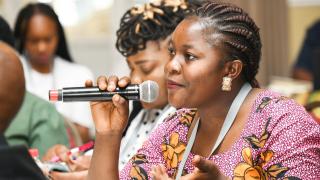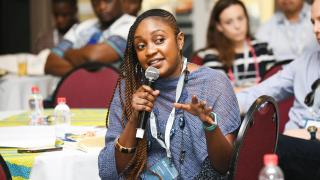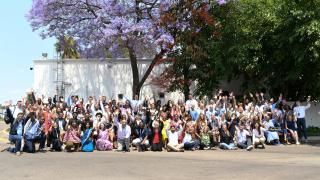Why should you join our community?

- Connect, network and learn from peers working on innovative programmes and solutions to improve educational outcomes in over 60 countries.
- Participate in GSF's Annual Meeting, uniting members, partners, and stakeholders to foster connections, share insights, and advance our mission of delivering quality education to children and young people.
- Access flexible funding, technical expertise and coaching through the Impact at Scale Labs to test, adapt and scale promising solutions.

- Join specialised Communities of Practice and events that create collaborative spaces, foster South-South learning, create collaborative spaces, and provide learning & development opportunities for practitioners.
- Benefit from our evidence-based knowledge products and actionable toolkits that are co-created with our community to help inform and strengthen your organisation and practice.
- Engage in, and shape global policy processes and discussions on how non-state capacity can be harnessed to improve education outcomes.
- Foster relationships with policy makers, researchers and advocacy organisations, and establish global partnerships to scale your work.
Who should join the community?

Apply to join the Global Schools Forum community if you are:
- A standalone non-state school,
- A network of schools or early childhood care and education centres, set-up and operated independently or in partnership with government,
- An education support organisation providing curriculum, pedagogical, capacity building, financing and other core services to non-state and state schools,
- Working in low- and middle-income countries to improve education for underserved communities

